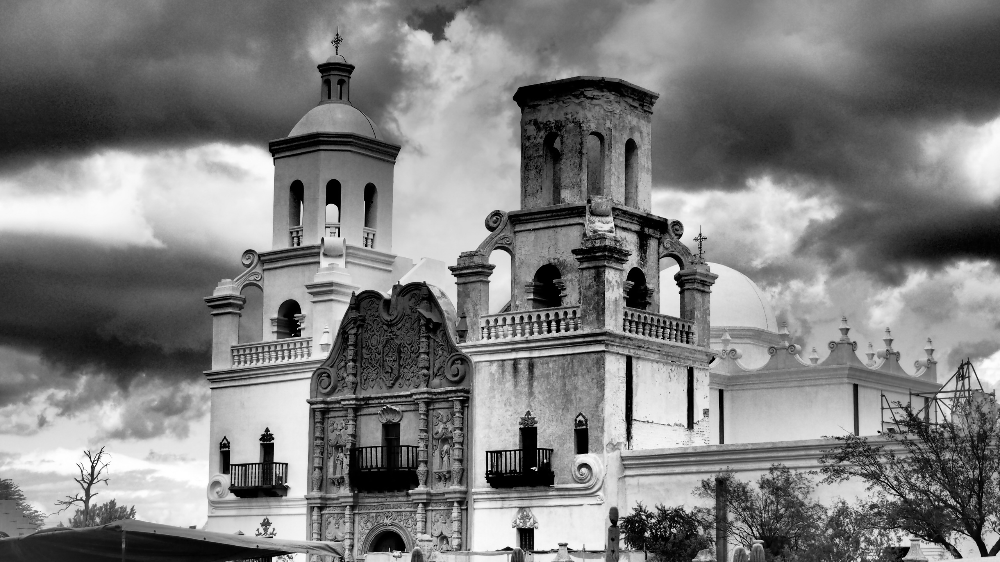Using Myers Briggs (MB) to Grow in Love - Part 3 of 4
THINKERS (Ts) V. FEELERS (Fs)
Let’s be very clear, thinkers (Ts) have feelings and feelers (Fs) use their logic. However, when making decisions, Ts rely more on logic; Fs rely more on how people will be affected by a decision. Let us give some examples of how the T and F preferences have shaped our family’s decisions.
How Much to Charge?
In our family, we had three Fs (Charlie, Marty, and Heidi) and one T (Lincoln). Let us share with you two instances when these decision-making preferences came into play. When Lincoln was about 10 and Heidi 13, we read in our church bulletin that a young woman was seeking lodging in a Catholic home. Upon meeting her, we found out that Kim was a Vietnamese refugee. Her father had been a Colonel in the South Vietnamese Army and had been imprisoned after the fall of Saigon. Under harrowing circumstances, he, his wife and six children escaped to the United States. Her father and mother then operating the Lutheran Family Services Vietnamese Relocation Program in Greensboro North Carolina. Kim shared with us that she had been educated in Saigon by Catholic sisters and wanted to become a Catholic, thus her desire to live in a Catholic home.
Kim had just graduated from college and had a job working in the Research Triangle. She told us that she would go home every weekend to help her parents and would give her family any extra money she earned.
The decision we faced was how much to charge Kim to rent a room with us? It is a small room without a closet, but she would have cooking privileges. Surveying prevailing single rental rates, we found out that the going rate was $300 a month. We further found out that Kim had a job as a programmer at IBM paying $32,000 a year in 1989. We pose five questions to you:
- How much did the three Fs think we should charge?
- How much did Lincoln, the one T, think we should charge?
- How much did we charge?
- How much would you charge?
- Not knowing anything about MB at the time, what did I, Charlie, think of Lincoln’s decision?
- Now aware of MB what do I think of his decision?
Whether to Become Foster Parents?
Not able to have more children, we decided to become foster parents. Lincoln was about 11 and Heidi 13. We went through about six weeks of intensive preparation. Upon concluding our training, the County officials told us that we could only be foster parents to a girl because boys were not available. They also told us that because most girls had been sexually abused Charlie could never be left in the home alone with our foster daughter. Moreover, the family could not hug their foster daughter who might get a wrong impression. We were taken aback with the news but decided to go ahead pending the approval of Heidi and Lincoln. Heidi, a strong F, agreed that we should be foster parents. Lincoln, an equally strong T, said that he did not think it was a good idea. He assured us that the decision was up to us but he was not supportive. By this time, we were using MB in our family. Lincoln had helped us in the past by bringing his T to family decisions. We respected his input and did not become foster parents, which turned out to be a very good decision because shortly thereafter Heidi suffered from erratic, strong, confused bipolar symptoms. Dealing with her challenges and being foster parents would have surely unduly strained our family. Thereafter, we always sound out Lincoln's point of view, balancing his T preferences with our F orientation.
Whether to Pass Billy?
Many have to make tough people decisions every day. For instance, supervisors must decide whether to discipline an employee and if so to what extent? Parents must decide to what extent they should exercise tough love letting their children learn from their mistakes. Let us share an instance where Marty had to make such a tough decision. As a social studies teacher, Marty taught students at all ends of the educational spectrum. Without parental support and encouragement, many of Marty’s students did not consistently complete their homework or pass the tests. Some students had jobs at the end of the school day; others were even ridiculed by friends for taking their books home. In this particular instance, Marty had to fail Billy, a really nice kid who just did not do his homework or pass the tests. The next year, Marty was surprised that Billy had signed up for her class again! Yet again Billy did not do his homework or pass his tests, Billy was now a senior. If Marty passed Billy, he could graduate. Two of his school counselors strongly urged Marty to pass him.
We gave this scenario to 10 teachers: five Fs and five Ts asking them what they would have done.
- What did the Ts say they would have done?
- What did the Fs say they would have done?
- What did Marty do?
- What would you have done?
Marty and Charlie Coe
have 35 years of Marriage Preparation and Enrichment Experience. They have written a book of exercises and insights to help you in your marriage. LOVE IS A DECISION
is available as a downloadable pdf file at http://www.decide2love.com.

February 8, 2020
It is with great sadness that I share the news that Charlie has passed. Charlie & Marty have been an inspiration to so many people whom their lives have touched. May we remember and share the love that he so freely gave and keep Marty and Lincoln in our prayers. He is dancing in heaven with his daughter Heidi now. https://www.dignitymemorial.com/obituaries/raleigh-nc/charles-coe-9028718

By Rhonda Clerkin
•
October 30, 2018
How do today’s couples meet? In our day, many eons ago, couples mostly met in college or high school, in bars, at church or at work. As a non-churchgoer, Charlie mostly met ladies in pubs or went on “blind” dates with decidedly mixed results. Marty dated guys in college and fellow teachers after graduation. In our day, the pressure was great to be engaged before graduation from college. Ladies not engaged by then were deemed “old maids.” Far different now, the average guy and woman marry at age 32 and 28, respectively. Also changed is how couples meet. Most commonly they met at work, in high school, in college, in church, or in a pub, but the dating scene dramatically changed in 1995 when Netscape launched its dating site—match.com. In the 2010’s online dating apps moved from the laptop to the phone. In 2013 the app, Tinder, enabled one to simply swipe right for “yes” or left for “no” as to express one’s or lack thereof. A phone-based app is more immediate, personal, and public than using a keyboard. Initially, many couples felt embarrassed that they had met online. Now, however, with its increased incidence, most couples feel comfortable sharing that they met online. More commonplace, the percentage of couples who met via the Internet grew from 0% in 1995 to 22% in 2010 with the methods below decreasing: Via a mutual friend—38% to 28% Via a high school friend--10% to 2% Via a fellow church member—8% to 2%. Remaining mostly the same were couples who met in met in bars/restaurants (22%) and college (10%). Notable findings regarding digital dating include, Couples who met through online services are slightly more satisfied than those who meet by the other means. More mixed-race couples meet online than by more traditional dating methods Men liked 60% of the women they met digitally, whereas women liked just 6% of the men. The least attractive women are as desirable to men as are the most attractive men to women. Men’s desirability of women is highest at age 18, but after that declines. In contrast, women’s desirability of men does not decrease until men are 50. For many, trawling for matches is exhaustingly frustrating, and 5% of men never match. In our marriage preparation work, we are quite struck by how few of the couples would have met through traditional dating methods. For example, the daughter of good friends met her future husband while he was serving on a Navy ship in the North Atlantic. Source: The data are drawn from Putting the Data into Dating, (2018), The Economist (Volume 428, Number 9105)

March 16, 2018
“In this sense, it is less a matter of searching for God than of allowing oneself to be found by Him in all of life’s situations, where He does not cease to pass and where He allows Himself to be recognized once He has really passed.” James Martin. 2010. The Jesuit Guide to (Almost) Everything. New York: Harper Collins. P. 98. (Marty) Two weeks ago we flew to Tucson, Arizona for a 9-day exploration of Southwest Arizona, five days of which was on a tour conducted by the Road Scholar organization. Upon our return home, we stumbled on this quote above, which prompted us to reflect on how God found us on our trip. We realized that God found us through experiences, nature, places, people, and via the Holy Spirit. Let us share how God was present to us. Finding God in Experiences (Marty) I found God at the Tucson Rodeo in the singing of the national anthem with a group of very strong patriots standing under the huge Arizona blue sky. My heart was filled with love for my country. I was also moved at the sight of the horseback riders in the arena bearing the flags of all the branches of the armed services. There was such a strong sense of gratitude for all the men and women in the military. (Charlie) I found God singing old cowboy songs played by a local cowboy guitar guy. “Home, home on the Range, ”Back in the Saddle Again,” “Riders in the Sky,” “Cool Water, “were among the songs that reminded me of my youth and my favorite cowboys like Roy Rogers, Gene Autry, and especially Lash Larue. Now please take time to reflect on a recent experience in which God found you. Finding God in Nature (Marty) I loved seeing and being surrounded by as many different plants and trees. Having four mountain ranges surrounding the city gave me a feeling of awe and grandeur. Honestly, I could see a vision of Don Quixote in the Saguaro cactus plants tall arms. (Charlie) I am totally color blind, so the world is mostly green to me. But watching the sun rise over the mountain ranges in a bright color, maybe yellow, touched me. I thanked God for making Himself clear even to disabled me. On another occasion, we took a tram up Sabino Canyon, dwarfed by sheer mountains on each side. I felt humbled, awed, and for some reason a bit scared. Finally, we had the area’s first rain in a long time. Every drop is precious there, just as is every second of our lives. Now please take time to remember a recent time when God found you through nature. Finding God in Places (Marty) I found God, or He found me, in the historic Church of San Xavier Del Bac founded by the Jesuit Priest, Fr. Kano, in 1692 located on an Indians Reservation south of Tucson and rebuilt by the Franciscans in 1785. Called the “White Dove of the Desert,” filled with saints and angels, the church is lovingly being restored by volunteers. (Charlie). God found me at the Presidio, the restored Spanish fort in downtown Tucson. I sat on a bed in a little dirt-floored room where the temperature averages 105 degrees in the summer, over 1,000 miles from home, facing understandably irate Apaches. Now please take time to reflect on a place where God recently found you. Finding God in People: Every Human is a sacrament—a Child of God. (Marty) I found God in the young service workers in Tucson taking such pride in their efforts to serve us. For example, (1) Andrea the receptionist at the hotel, after 10 straight exhausting days at the hotel, still kind, laughing and smiling, (2) the workers at the bakery restaurant excited to serve us and telling us about their second, new location at the airport, (3) Marcus doing his first blood draw on me in the ER room. Not knowing it was his first, I said “You must have done lots of these and he replied “Nope it’s my first” (P.S. He did great) (4) Jayson who was so proud that he had left his job as an auto mechanic to become a Nurse Tech and serve people. (Charlie) We knew the tour group, formerly called, Elder Hostel, would be old, but not that old -- yet every person was a warrior, never complaining, never late, intellectually curious. Here are some notable examples (1) Alysa—blind from birth with her friend Brian who was her eyes and their amazing seeing eye dog, Carmel; (2) slumped over Bill and Susan his bride of 62 years, (3) Brenda, who fell on her face just before leaving for the airport; but who put an ice pack on her black and blue face that the flight attendants replenished; Diane, who could not get a cab to take her to the airport because of blizzard conditions in Chicago but somehow made it; and Barb who had been hit while riding her bike severely injuring her arm that she had to painfully rehab during the trip. God found me through the undaunted courage of these and other folks. Now please take time to remember a person or persons in whom God is indelibly present to you. Finding God Through the Holy Spirit (Charlie) Sometimes things happen that are just too coincidental to attribute to random chance, kismet, or luck. Rather, Marty and I attribute them to the Holy Spirit creating opportunities to love others. For example, at the tour group’s last function, a closing dinner, a lady somehow figured out we had made a Marriage Encounter Weekend. She and her husband had dialogued for many years. After her husband died, she deeply regretted having earlier thrown out their many dialogue books. Also, somehow, we had long talks with Jean, who like us, has a son on the autism spectrum. In sum, we are called to be alert to the many ways that God finds us every day either instantly or once He has passed. This continuing awareness of God’s presence in our lives strengthens our faith and helps us to live our lives to the utmost. Now please take time to remember a recent time you experienced God through the Holy Spirit.

By Rhonda Clerkin
•
February 15, 2018
At the heart of a decision to love is the willingness to make a compromise. Deciding to love is not gritting our teeth and giving in to our spouse; rather it is a loving compromise with which both feel comfortable. After 50+ years of marriage, we have made loving compromises with respect to:
WHITE OAK COMMUNICATIONS, LLC
6713 Candlewood Drive
Raleigh, North Carolina 27612
919.676.5707
©
Copyright
Marty and Charlie Coe
